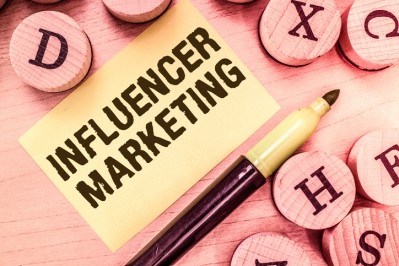FTC warnings about COVID-19 claims now also include social media platforms and ecommerce sites

The US Federal Trade Commission sent the warning letters to companies marketing dietary supplements, hebal teas and other beverages and a number of medical devices and therapies. The new warnings join more than 400 FTC has posted since the start of the pandemic.
“Americans are still suffering from the COVID-19 pandemic, and scammers are still taking advantage of them by making false claims about cures and treatments,” said Samuel Levine, director of the FTC’s Bureau of Consumer Protection. “Our efforts to stamp out those claims will continue in 2022, and any marketers not heeding our cease-and-desist demands can expect to face consequences, including civil penalties.”
The amount per violation of those civil penalties was recently ramped up as part of an inflation adjustment. The per-violation penalty amount now stands at $43,792.
Social media platforms put on notice
The warnings sent out yesterday differed markedly from previous COVID-19 warnings the Commission has sent in that now FTC is putting on notice the social media platforms and ecommerce sites on which the offending messages were shared. Facebook was cc’d on 18 of the warning letters, and a further 11 used Instagram, with 5 each sending out allegely impermissable claims via Twitter or YouTube. Also mentioned in the enforcement action were the sites Etsy, LinkedIn, Shopify and TikTok.
Attorney Ivan Wasserman, a partner in the firm Amin Talati Wasserman, said this current shift should put all companies on notice that use social media and the influencers active there to get the word out about their products.
“When I started practicing FTC law more than 25 years ago, even though there were advertisements in newspapers, on radio, billboards and more, most of the FTC cases against dietary supplements were brought against claims made in television commercials, including infomercials, because that was the medium that had greatest power to deceive the most consumers. Nowadays, that power has shifted to the Internet, and in particular to social media,” Wassermaon told NutraIngredients-USA.
“While the FTC has been including social media posts in Warning Letters for Covid and other claims for a while, yesterday’s action was significant because they cc’d the social media platforms and even the e-commerce platform Shopify,” he said.
“The FTC’s position has always been that it can take action against not only the product advertiser, but anyone who has been involved in creating or disseminating the deceptive claims, and that has profited from ‘ill gotten gains.’ I’m sure those cc’s are causing quite a stir in the legal departments of those companies and many other companies,” Wasserman added.
FTC focus at Sports & Active Nutrition Summit
Wasserman will present a session on recent more aggressive enforcement stance by FTC at the upcoiming Sports & Active Nutrition Summit, which returns as a face to face event on Feb. 14-16. The venue is the Hyatt Regency hotel on San Diego’s beautiful Mission Bay. For more information and to secure your place, use the links below.









